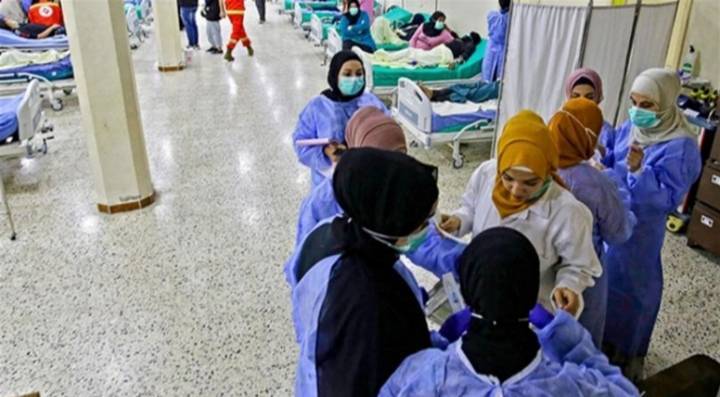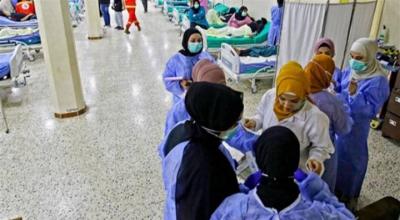Lebanon is advancing in the first phase of the race against cholera bacteria, with "a stabilization of the infection count," according to Minister of Health Firas Abiad. The infection tally reached 3,395 cases as of last night, marking a 5% increase since the beginning of this month, while the death toll has remained at 18 for about two weeks due to the completion of necessary preparations for combating the outbreak, the clarity of the epidemic situation and methods of fighting it among most people, as well as the general tendency to distrust all water sources, which contributes to reducing the severity of the spread. Additionally, the preparedness of medical teams in affected areas is benefiting from previous equipment and experience gained during the fight against the COVID-19 pandemic.
### Vaccine News
The arrival of the vaccine enhances a sense of relative reassurance, with the Ministry of Health receiving 600,000 doses and launching a vaccination campaign last Saturday in hot zones covering four governorates: North Lebanon, Akkar, Baalbek-Hermel, and Bekaa. The vaccine designated for combating cholera is easy to use and practical, taken orally, making vaccination campaigns straightforward and not requiring complex preparations, unlike those used against COVID-19, such as extreme refrigeration. UNICEF has also supported these efforts by purchasing necessary treatments to treat 5,000 people and distributing them to newly established field hospitals in the regions.
However, relying solely on vaccines will not provide a permanent solution to the epidemic, as the targeted individuals will not receive more than one dose, aimed at increasing their numbers and diversifying the vaccination demographic to include all hot areas. Additionally, the limited global supply of vaccines means that, according to some experts, "the arrival of these quantities in Lebanon is a significant achievement" due to the global shortage and the inability to meet demand in affected countries. According to infectious diseases doctor Dr. Abd al-Rahman al-Bizri, "one dose will not provide protection for more than three months at best," and the solution lies in "activating coordination between the concerned departments, including the Ministry of Energy, which must secure basic electricity for drawing clean water and operating treatment plants. The complete eradication of cholera is linked to effective infrastructure."
### Concerning Numbers
Moreover, cholera is entering new areas, signaling alarming indicators. Therefore, complacency must be strictly avoided in light of any "good news," as Lebanon's infrastructure remains deteriorated, with no real resolution to the underlying causes of cholera spread to date. Electricity has not returned in any genuine sense, and water and sewage distribution networks have not been repaired. Consequently, any progress that is not genuinely fortified will revert to devastating setbacks, especially with "a medical sector exhausted by migration, having lost nearly 40% of doctors and 30% of nurses," according to Abiad.
Figures indicating outbreaks of other diseases besides cholera also reflect this deterioration. According to surveillance reports from the Ministry of Health, 1,596 cases of "jaundice," or Hepatitis A virus, have been recorded in 2022, up to the beginning of this month, with the North governorate accounting for the majority, having 1,084 cases, followed by Bekaa with 380. Additionally, diseases that had been previously eradicated in Lebanon, such as typhoid, have returned with 182 recorded cases. Food poisoning incidents reached 500 within the same timeframe, with all these diseases linked to the consumption of food or water contaminated with pathogenic bacteria.
### Bacterial Residency
Ongoing concern and reluctance to ease restrictions are fueled by the continuous rise of cholera cases in neighboring Syria. The World Health Organization has expressed this concern by raising the epidemiological level to the second degree in Syria on a three-point scale, indicating a similar problem in several neighboring countries. Health sources monitoring the outbreak in Lebanon and the surrounding region fear that bacteria may settle in the interconnected waters, suggesting that "delays in treatment and control are steering the area toward a scenario similar to the situation in India," the original home of cholera, which "is highly affected by water temperature and seasonal changes, decreasing in activity with lower temperatures and increasing in summer, leading to local epidemic waves with every change in temperature."




